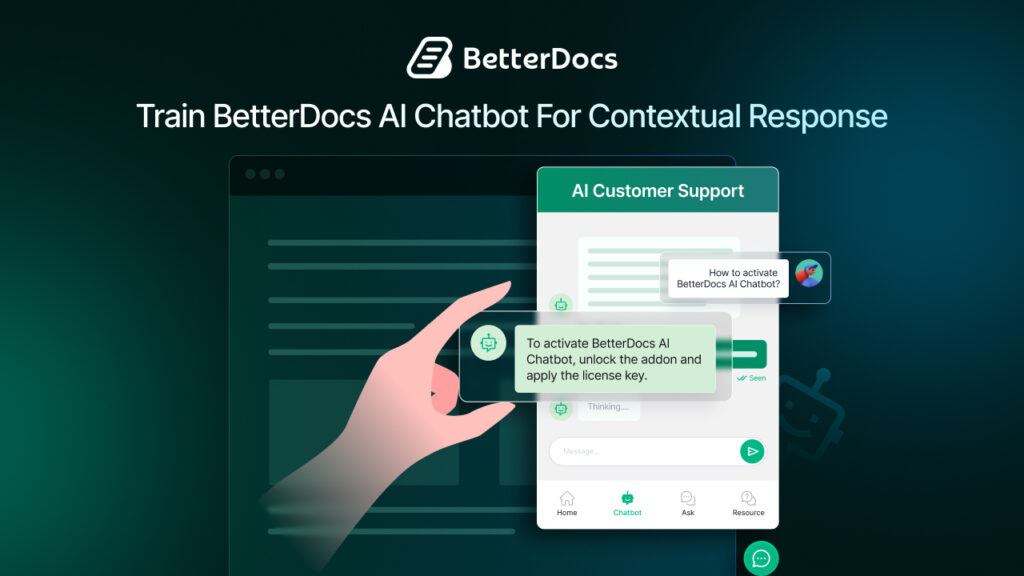Managing a knowledge base is essential for businesses that want to offer excellent self-service choices and deliver good customer assistance. However, merely having a knowledge base is insufficient; monitoring important indicators is necessary to evaluate its effectiveness, pinpoint areas that require improvement, and guarantee its ongoing success. In this post, you will look at 9 important knowledge base analytics or metrics you should monitor while assessing the usefulness of your knowledge base.
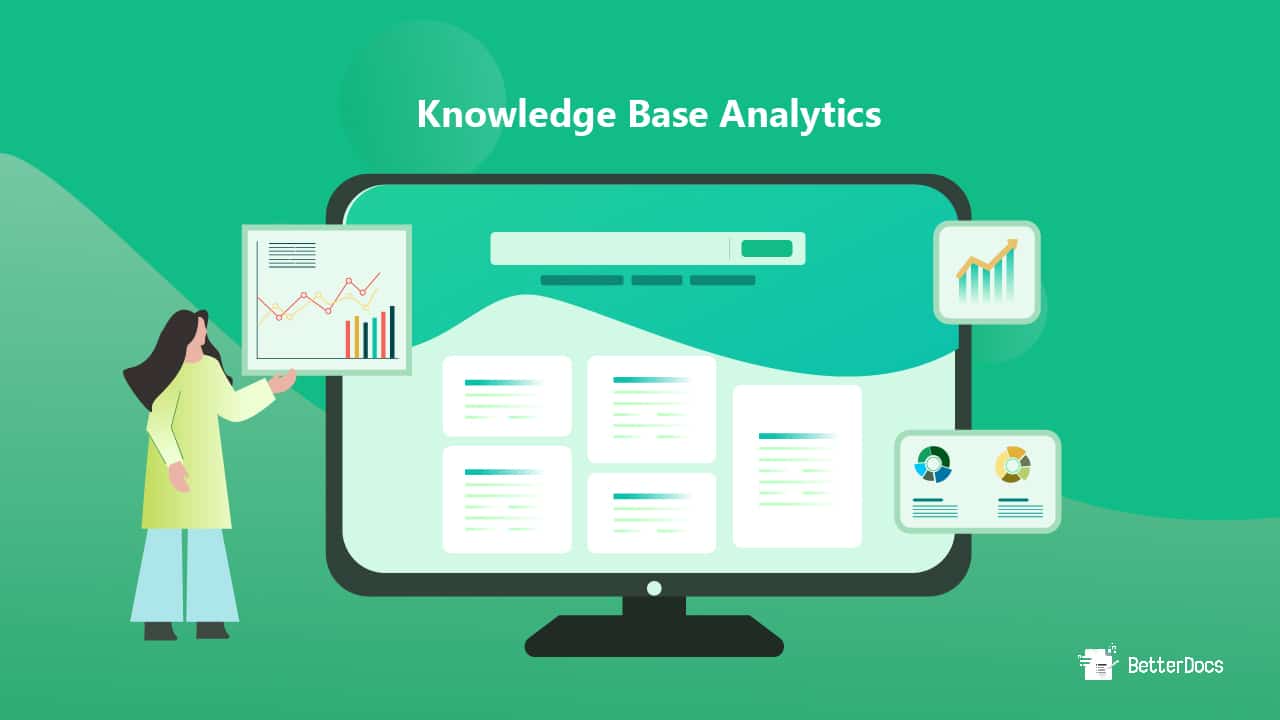
From customer support tickets and product documentation to internal processes and best practices, the knowledge base of an organization holds a wealth of valuable insights. However, in today’s fast-paced digital landscape, organizations are constantly grappling with the sheer volume of information they generate and consume or need to share daily. And extracting meaningful and actionable knowledge from this vast repository can be a daunting task.
Enter knowledge base analytics, a transformative discipline that empowers businesses to unlock insightful data and the full potential of their knowledge bases. By applying advanced analytical techniques and leveraging cutting-edge technologies, knowledge-based analytics provides organizations with the tools to optimize operations, improve customer experiences, and drive informed decision-making.
Knowledge Base Analytics: 9 Metrics You Should Track
But with countless metrics and KPIs about knowledge bases, it is important to know which ones you should track. And so, we bring you our researched list of the top 9 metrics for knowledge base analytics with detailed benefits each offers businesses across industries, enabling you to discover the untapped potential of knowledge base analytics and discover how it can revolutionize the way organizations leverage their collective knowledge.
You will also uncover the underlying methodologies and technologies that enable the analysis of knowledge bases, shedding light on the various analytical techniques used to gain actionable insights from the metrics discussed. By the end of this article, you will have a comprehensive understanding of knowledge base analytics, all 9 key metrics, and how it can positively impact your business’s growth and success.
Learn More: 10 Essential Tips For Creating The Best Company Knowledge Base
1. Compute Search Terms:
Analyze the search terms people type in the search box for your knowledge base. This knowledge-based metric can help you know the most popular subjects and questions people actively browse on your site. By utilizing this data, you can improve your content and make sure your knowledge base satisfies user requirements.
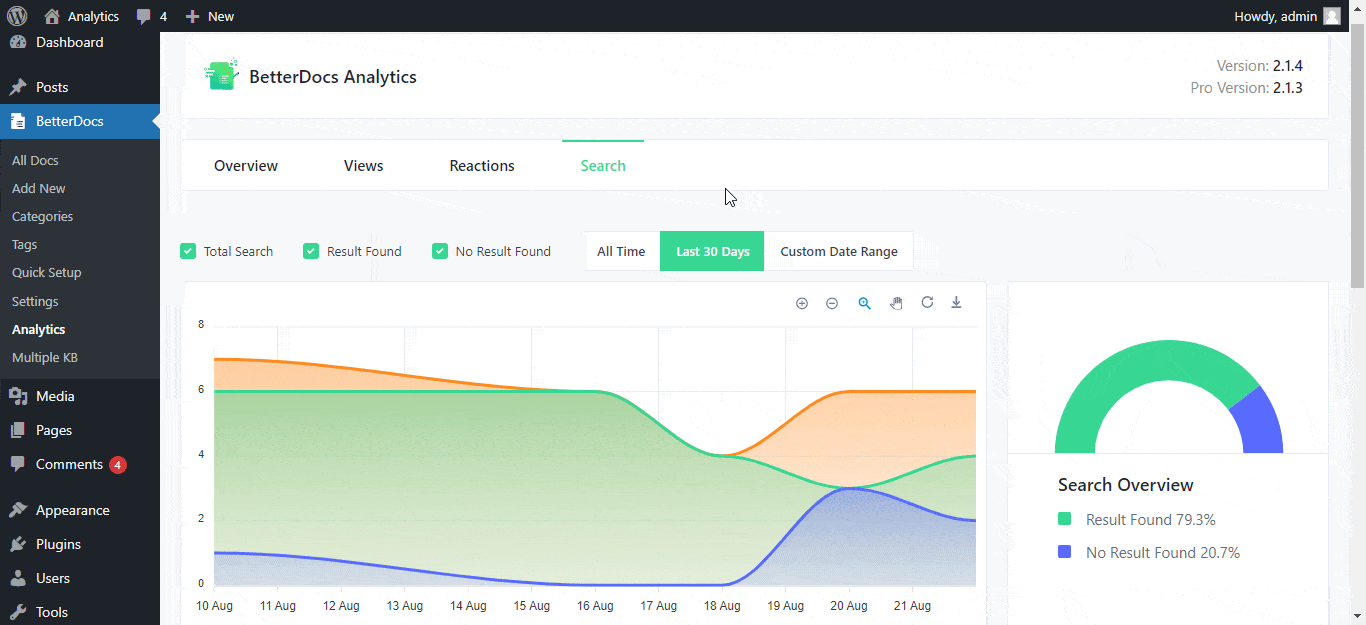
2. Review The Top Viewed Articles:
You can learn which subjects are most important to your visitors by keeping track of which articles are most popular. Each article’s views or unique visitors should be counted to determine popular subjects and concentrate on writing more articles about them.
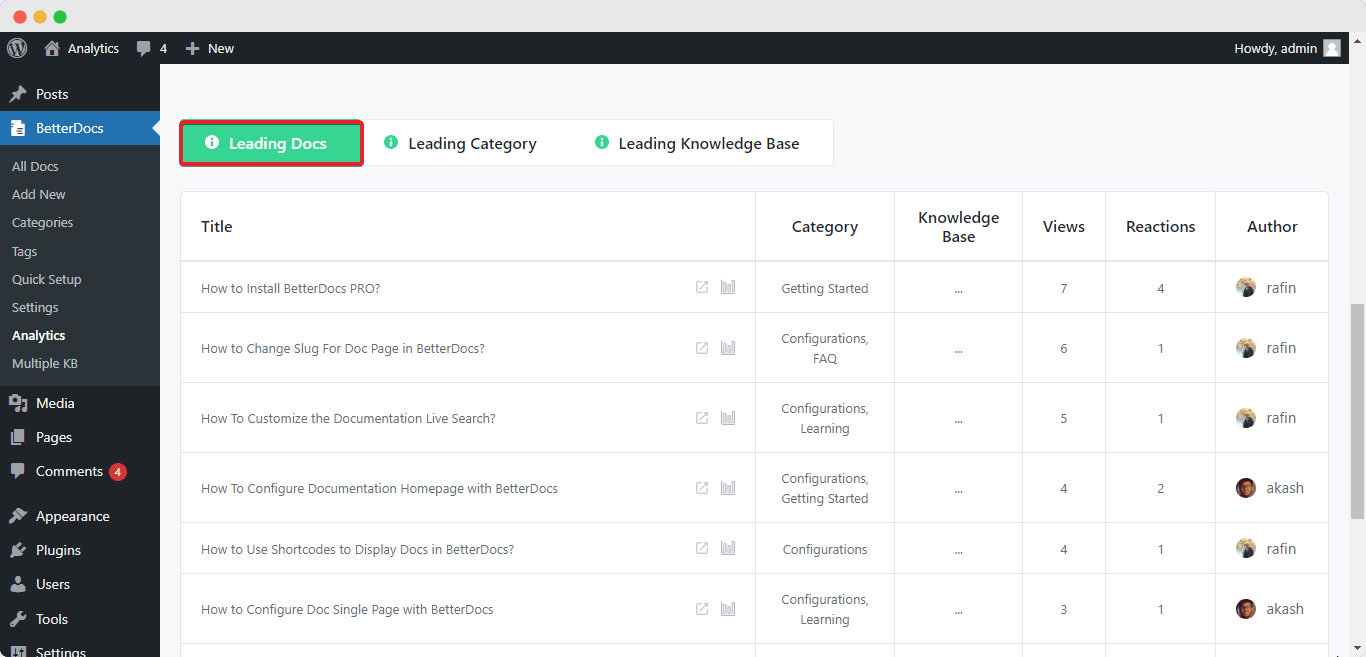
3. Evaluate Search Success Rate:
By keeping track of the percentage of searches that lead to a user discovering the information they require, you may determine the success rate of user searches. This measure enables you to assess the performance of your search functionality and spot any content coverage gaps.

4. Look At Average Time on Page:
To assess an article’s usefulness, monitor the typical time users spend reading it. Higher engagement rates signal that people value the content, while lower engagement rates may indicate the need for content revision or development.
Learn More: How To Optimize Your Knowledge Base With 5 Simple Steps
5. Measure The Bounce Rate:
The bounce rate measures the percentage of users who leave the knowledge base after viewing a single article. A high bounce rate may indicate that users are not finding what they need or that the content is not engaging enough. Analyze the bounce rate to identify articles that need improvement or further cross-linking to related content.
6. Check Out The Conversion Rate:
Track the conversion rate of any call-to-action (CTA) buttons or links to other resources in your knowledge base to determine how well it encourages users to do the intended actions. This could involve completing a purchase, submitting a support request, or signing up for a newsletter.
7. Calculate Feedback and Ratings:
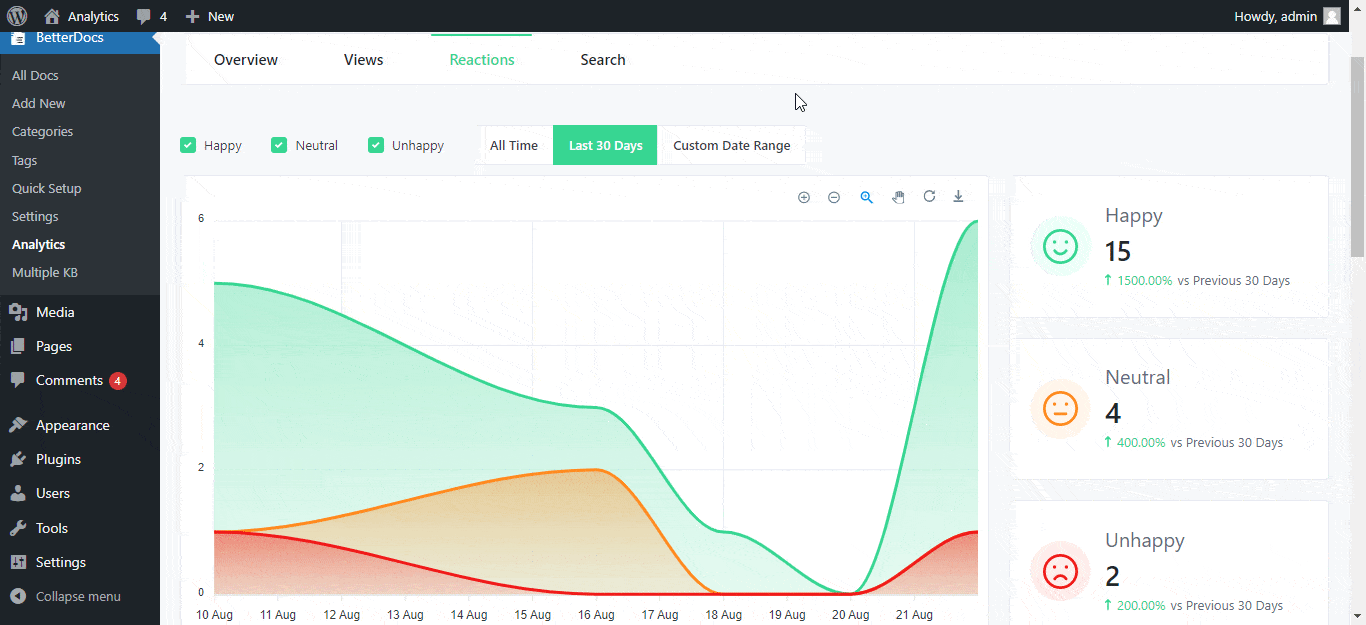
Encourage users to comment on the documentation and faqs in your knowledge base. You can assess customer happiness and spot areas that want improvement by keeping an eye on comments and ratings. Positive feedback can also point you in the direction of articles that readers have found to be especially helpful. This is one of the knowledge base analytics metrics to look at.
8. Asses The User Feedback Response Time:
Keep track of how quickly users respond to comments and support inquiries made through the knowledge base. consumer satisfaction can be increased by promptly responding to consumer inquiries, which indicates outstanding customer service.
9. Analyze Deflection Rate:
Calculate the proportion of user problems that are handled by the knowledge base without the need for further assistance. A high self-service rate shows how well your knowledge base works to solve problems and lighten the load on support employees.
Bonus Tip: Introducing NEW & Improved BetterDocs Analytics: Revamped UI, Search Analytics & More
Now It’s Your Turn To Explore!
Monitoring these knowledge base analytics 9 metrics will give you important information about the effectiveness and impact of your knowledge base. You may optimize your content, make data-driven decisions, and improve user experience by routinely reviewing these indicators. By utilizing these indicators on your knowledge base analytics, you can maintain your knowledge base’s quality and make sure your consumers continue to find it useful.
If you want to read more fun blogs like this, then subscribe to our blog page and join our friendly Facebook community to make a strong bond.

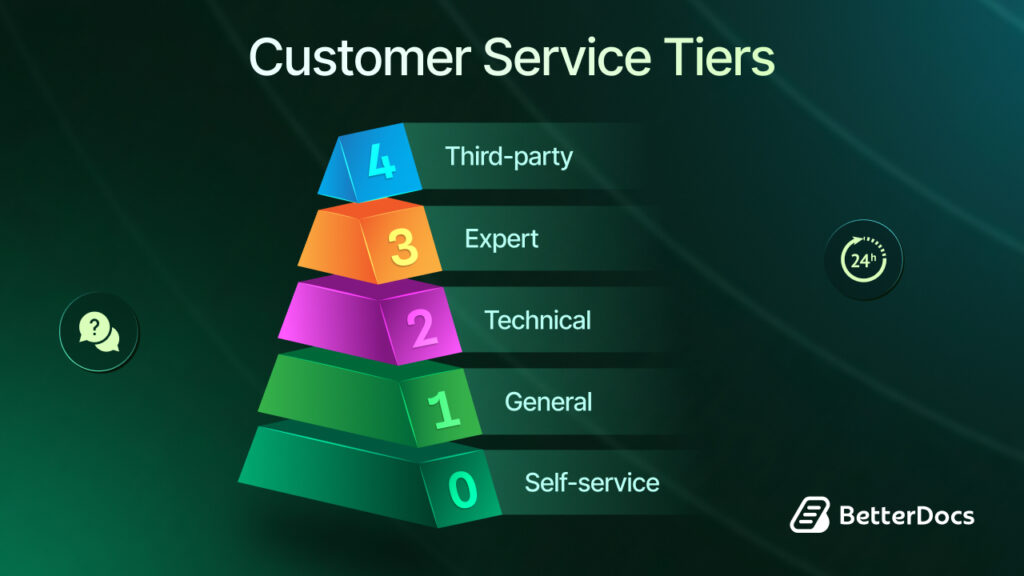
![5+ Knowledge Base Challenges You Should Look Out for in 2026 [With Solutions]](https://betterdocs.co/wp-content/uploads/2025/12/1280x720-_-Blog-Banner-_-Knowledge-Base-Challenges-1-1024x576.jpg)
